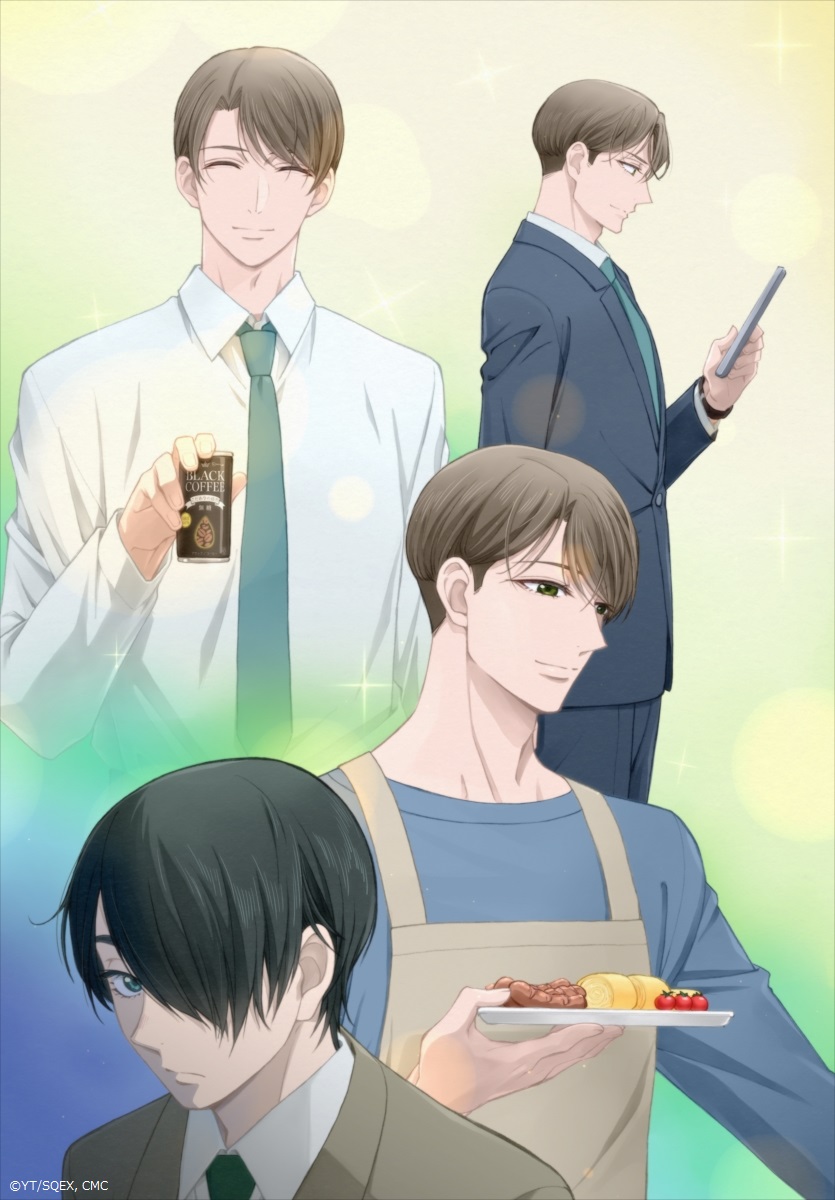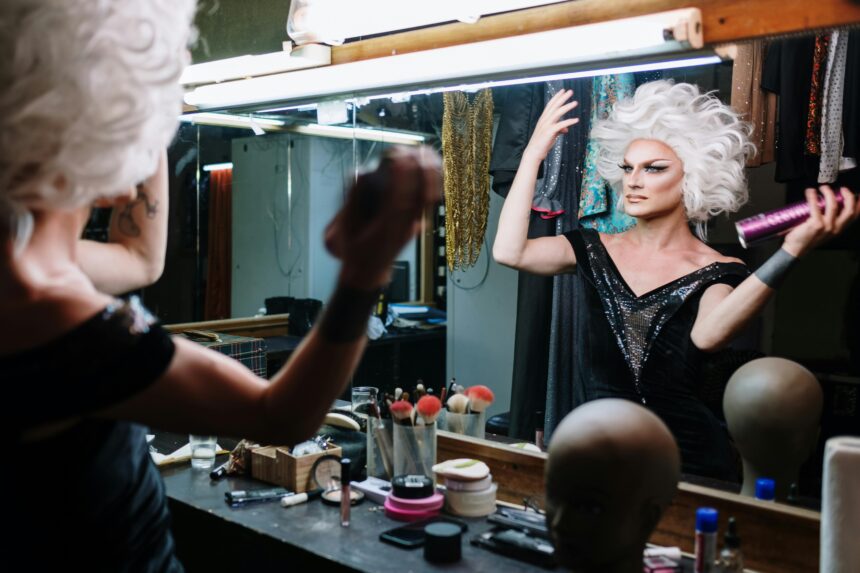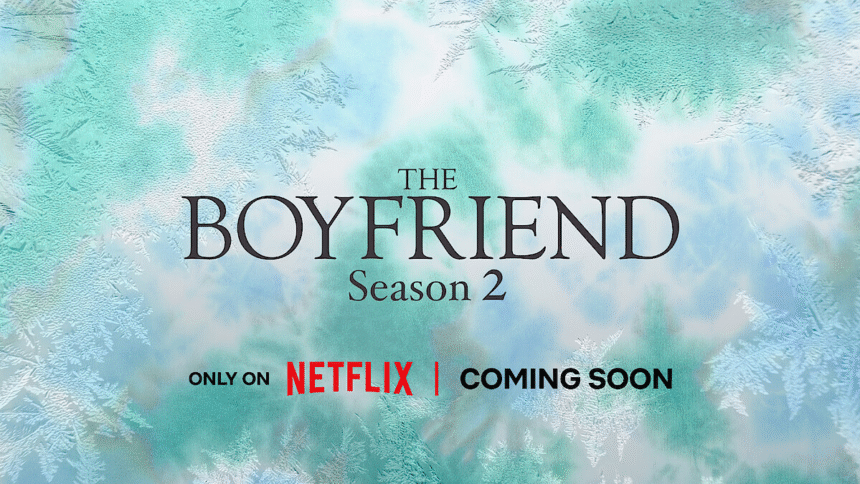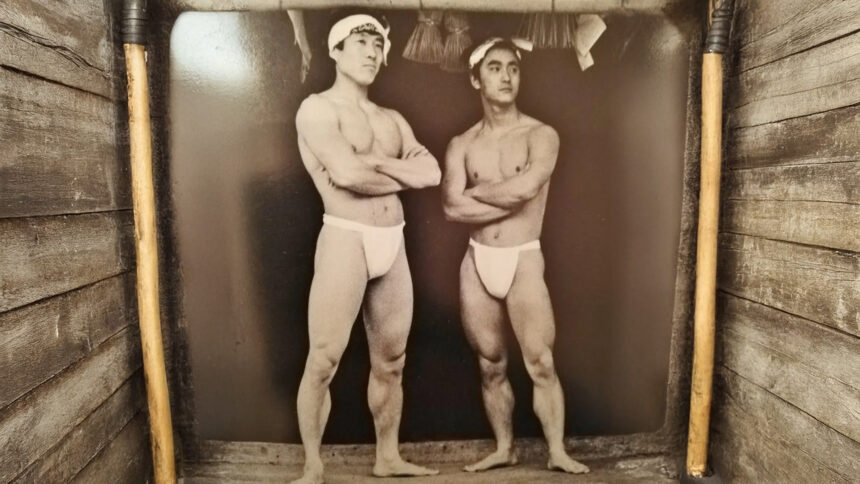I’m sure some of us have known – or even been – late bloomers, but I doubt we know anyone who has developed superpowers as a result. But that’s exactly what happens to Kiyoshi Adachi, who on the first day of his fourth decade on Earth develops the ability to read the minds of the people he touches.
Initially, he finds this power annoying and kind of depressing: as a pretty dull guy, he knows when people are annoyed by him or upset that they accidentally grazed his finger. But in the elevator at work one morning, he accidentally bumps into the most popular, handsome man in his company, Yūichi Kurosawa, only to discover that the tall hottie is obsessed with him. And so begins the LGBTQ+ anime Cherry Magic! Thirty Years of Virginity Can Make You a Wizard?!.
Plot Summary of Cherry Magic
Originally a boy’s love manga by Yuu Toyota and published in 2018, Cherry Magic went on to become a live action series in 2020 in Japan – as well as having a second live action adaptation in Thailand in 2023. It finally got a TV adaptation this year, broadcast on TV Tokyo, but it is also available on Netflix.
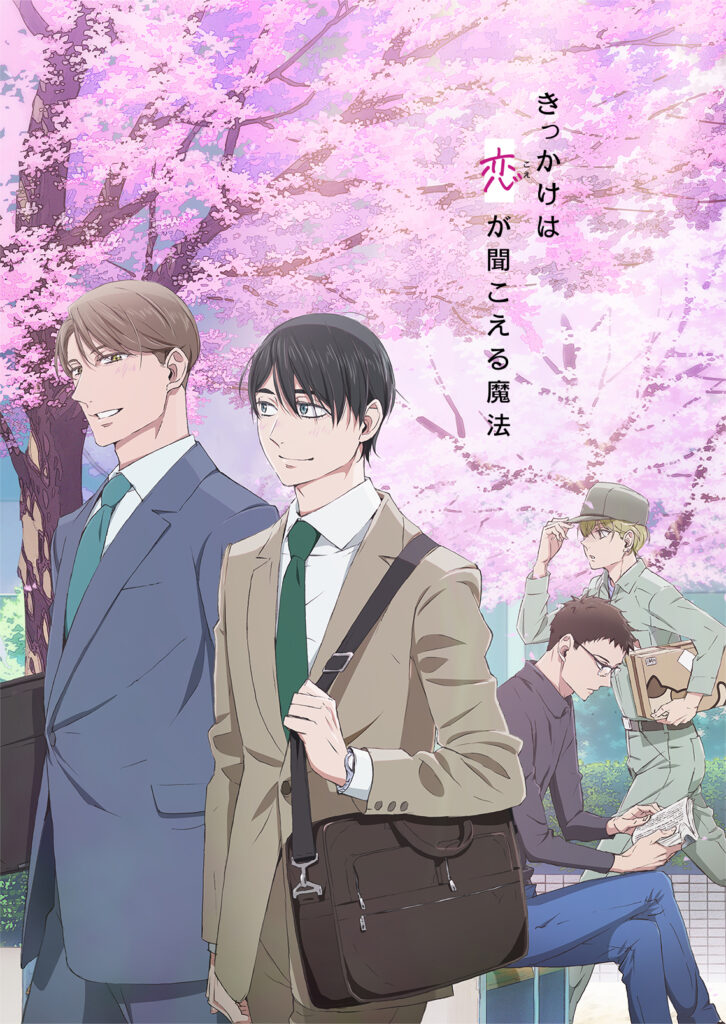
The story begins with our protagonist Adachi awakening, literally, to his new powers, and the issues they bring, like being able to hear the thoughts of every irritated passenger on Tokyo’s crowded trains. But it’s when he discovers that Kurosawa is besotted with him that the real change in his life begins.
As they become closer and closer, and Adachi senses (literally) that he is falling for Kurosawa, things become more complex as the series adds additional characters. These include Nozomi Fujisaki, a sweet and mild-tempered colleague who is secretly a BL maniac; the oblivious but bouncy new hire, Yuta Rokkaku; and Adachi’s college friend Masato Tsuge, a novelist who soon develops both his own mind-reading powers and a crush on his mailman, Minato Wataya.
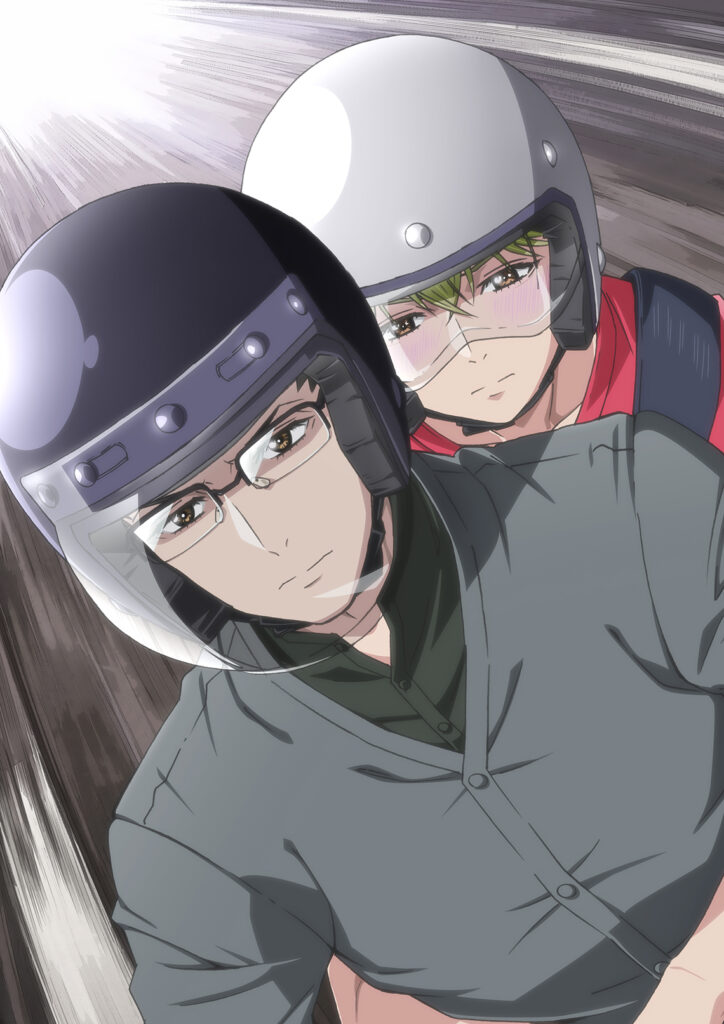
As a BL comedy, Cherry Magic conforms to a certain number of tropes. Our protagonist is clumsy but kind-hearted, the main love interest is a nice guy with a wild streak, and there are many instances of them being put into compromising circumstances, accidentally or otherwise.
Themes and LGBTQ+ Aspects of Cherry Magic
As a BL, Cherry Magic is, naturally, focused on male on male romance, but while definitely LGBTQ+, it would probably be wrong to describe this anime as a “gay anime”.
Firstly, although the series is set half the time in an office building, and features adult characters, it could easily be read as a metaphor, in large part, for adolescence and sexual awakening. Adachi’s sudden awakening to his powers could be likened to puberty, and his hearing the disapproving voices of those around him to the sudden self-consciousness that many teenagers experience. Kurosawa’s jealousy over Adachi speaking to anyone else also speaks to the insecurity of a first crush, as does Adachi’s nervousness over their first date.
In addition, it might be more accurate to call Cherry Magic a “bisexual anime,” as both Adachi and Kurosawa present more as bisexual than gay. In the past, Kurosawa has been in relationships with women, and Adachi has previously shown romantic interest in women, starting the series with “a girl [he] likes”. He also briefly considers whether or not he would be better off dating Fujisaki, who for her part has a crush on Adachi – but as a “card carrying fujoshi,” she is supportive of Adachi and Kurosawa’s relationship (maybe even a little too supportive…).
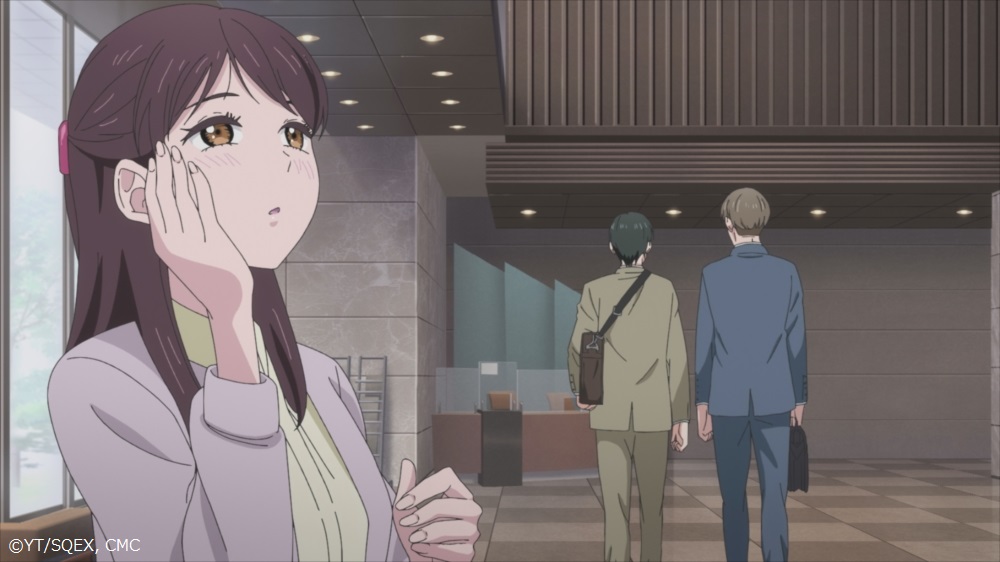
The realization (for both of them, but primarily Adachi) of their sexuality is also something common to the bisexual experience of many. Kurosawa comes to terms with his sexuality fairly quickly, where Adachi is initially confused, curious, and frequently vacillates between denying his feelings for Kurosawa and desperately wanting to throw himself into his arms. After realizing that he can’t be without Kurosawa, his work improves, and people begin to have a better view of him, seeing Adachi the way Kurosawa does. This is mirrored in the opening animation, where the voices of other people become crows that attack Adachi, while Kurosawa’s is a phoenix that allows him to be reborn.
Review and Thoughts of Cherry Magic
Overall, I thought this series was very enjoyable. The first half, in particular, where Adachi is wrestling with his feelings over whether or not he likes Kurosawa, all the while hearing Kurosawa’s excited, lovesick voice in his head was a fun watch, with a neat gimmick. It’s also where the comedy is front-loaded, with a good mix between Adachi’s introspection of his feelings for Kurosawa and laughs.
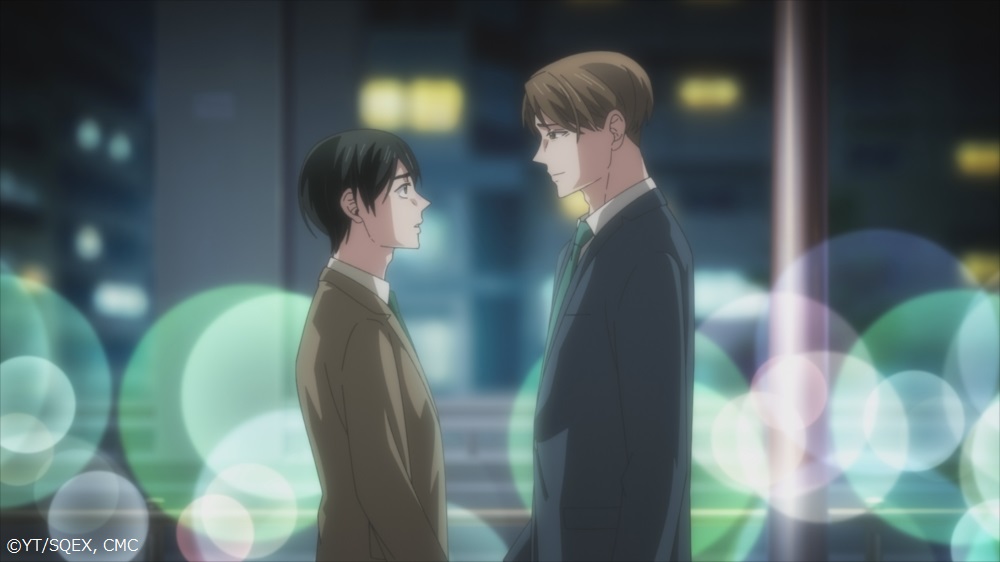
The second half, while still very good, is mostly focused on romance and drama, with laughs mainly coming from occasional interjections from Fujisaki. After the midway point, the show gets a lot slower, and one particularly potent source of drama is raised and then immediately resolved. It also begins to focus more on the side characters Tsuge and Minato, which – now that they have become a “will they won’t they” duo with very different backgrounds and attitudes – becomes more interesting than the focus on our primary protagonists. That said, there is a nice story arc for our main pair in the final third of the show, and the ending is very moving.
The music is a little bit forgettable. The opening theme is fun and catchy, with a terrific accompanying animation, but the score doesn’t leave much of an impression. The animation is also, with some exceptions, a little bit stiff. This is a little disappointing, particularly when the director, Yoshiko Okuda, previously worked as an animator on works such as Suzume and Millenium Actress. There are some nice little touches I enjoyed throughout, however: the eyecatches are unique for each episode, and the backgrounds have text from that episode’s dialogue. Another small thing is that whenever Adachi is reading Kurosawa’s mind, some charming music plays.
Overall, I would recommend this anime. It isn’t perfect, and I think the first half is superior to the second, but it is sweet, and it’s good to see representation for bisexual men, who are often overlooked in anime.

